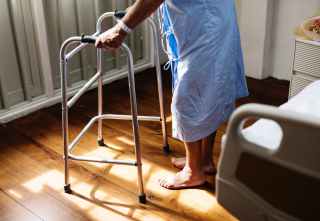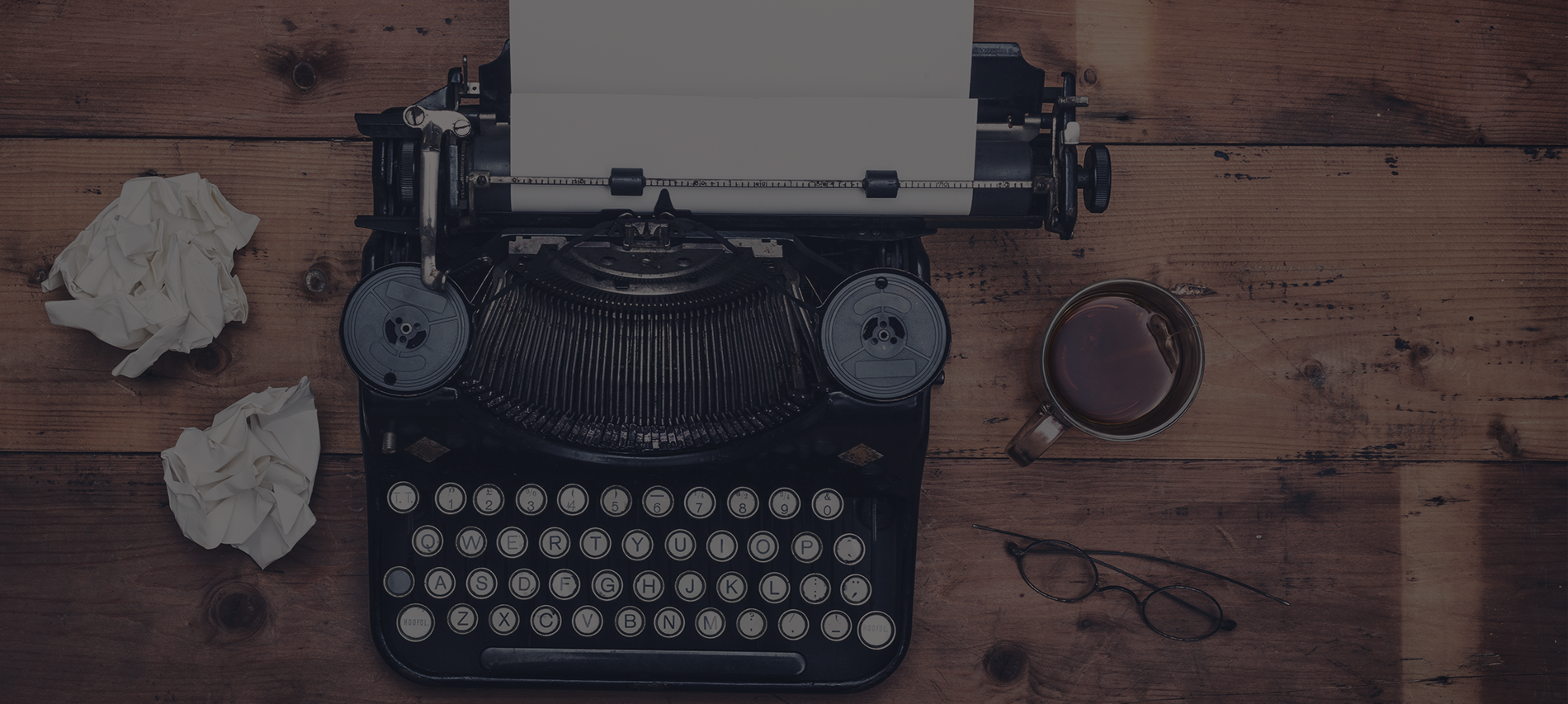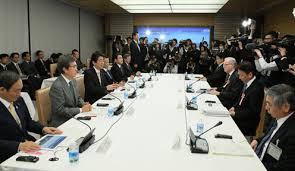This one’s a little rambling. I hope you’ll bear with me.
Part 1:
Recent events – both personally and in the larger world – have set me thinking about the still, quiet voices that go unheard in the gales that blow around us all. What happens to them as they are lifted by and lost in the roaring tempests? Is there some sort of Very  Large Array that sits in the middle of a desert somewhere, hoping to sort through the noise and find those life signs? Or, are the voices hopelessly lost in the maelstrom, and if they are, should we and can we find a means to lift them out, to hear them?
Large Array that sits in the middle of a desert somewhere, hoping to sort through the noise and find those life signs? Or, are the voices hopelessly lost in the maelstrom, and if they are, should we and can we find a means to lift them out, to hear them?
One of the “larger world” issues that many of us are (finally) speaking about is sexual harassment and assault faced in the workplace. To an outside observer, it’s as if, as a society, we’ve been surprised by the extent to which this harassing, power-abusing behavior happens, like it is some kind of new phenomenon which has caught most of us off guard. I can’t quite understand this. Let’s take Hollywood in particular. The “casting couch” is legendary. It’s been around as long as the industry has. Did anyone actually think these stories were NOT based in reality? Could anyone truly have thought that women (or men) who opted not to participate in the offered “couch activities” had any opportunity to build a successful career?
Hollywood has always had big voices, but the quiet voices are everywhere. For women, it’s a fact of life. A FACT OF LIFE. You’re taught about how to respond so that you don’t make waves, don’t get your partner angry, don’t annoy your boss, don’t die.
And who escapes it? Not fat women. Factory women. Coal miners. Pageant contestants. Mothers. Lesbians. Teachers. Nurses. Secretaries. Farmers. Waitresses. Mathematicians. Trekkies. Techies. Gamers. Children. Humanitarians. Doctors. Athletes. Politicians. Bakers. Executives. Prisoners. Wealthy. Homeless. Activists. Actors. Housewives.
The discussion so far seems to have been centered on hearing the voices and the stories of the women who have been impacted by sexual assault and harassment. It’s an important discussion. But it’s about more than hearing their voices. It’s about acting on what you’ve heard. And more than that, it’s about using our voices, the loud ones and the quiet ones, to make change. It’s not just about hearing and honoring the stories of people. It should also be about stopping the behavior. “Time’s Up” indeed.
Part 2:
 I remember seeing a TV show, maybe a Twilight Zone episode, where as a punishment, someone was intentionally ignored, as if they’d thrown an invisibility cloak over their shoulders and become non-existent in the world. (Or maybe this is my interpretive recollection of The Scarlet Letter?)
I remember seeing a TV show, maybe a Twilight Zone episode, where as a punishment, someone was intentionally ignored, as if they’d thrown an invisibility cloak over their shoulders and become non-existent in the world. (Or maybe this is my interpretive recollection of The Scarlet Letter?)
This has actually happened to me twice – once in college when I challenged our student government president, and once in the workplace when I refused to back down and leave a work situation where I was wrongly accused of something. It was strange – like in a ghost story when someone has died, but not left the real world yet. Life is going on around them, and they’re trying to participate, but the living can’t see them, can’t feel them, can’t interact with them. I don’t know if it’s happened to you. You’ll be in a room full of people, standing next to the person who’s ignoring you. He’ll speak to the others near you, but not to you. He won’t look at you. You’ll be in a receiving line, and he’ll skip right past you, speaking to the persons to your right and left. It’s disconcerting. It disconnects you.
In that quiet storm, you begin to feel as if your voice is mute, that regardless of what you have to say or contribute, it will never be heard. I found that it wouldn’t be by those two who removed me from existence by their actions. But there were others who listened through the whirling winds. It was about finding the right frequency – the pitch, the tone, the wavelength – to reach them. It was about their courage to hear despite the tumult and the possible consequences.
There are millions of people who feel disconcerted and disconnected every day. Whose existence is ignored – sometimes unintentionally, but sometimes very intentionally. People who live on the fringe who we can look past because they’re not “worth” our seeing them. I’m challenging myself (and you) to listen for their voices and to hear them. To look for them and to see them. To hear, to see, to act with and for them.
Part 3:
 I have been blessed with an employer who provides excellent health care. It’s been incredible to have coverage for my everyday health issues, as well as when I’ve had some significant medical issues. I’ve been aware of the distress of others in our system, those who can’t afford good (or any) health care, but to be honest, it hasn’t hit me because it wasn’t part of my experience.
I have been blessed with an employer who provides excellent health care. It’s been incredible to have coverage for my everyday health issues, as well as when I’ve had some significant medical issues. I’ve been aware of the distress of others in our system, those who can’t afford good (or any) health care, but to be honest, it hasn’t hit me because it wasn’t part of my experience.
That’s changed recently. My brother, who worked 42+ years until losing his job last year, faced a significant and serious health problem. He has health care (thanks to the ACA and Medicaid), which he got several months ago, and to be honest, all of us who love him have been so very thankful that he was able to receive the care he needed because he was now covered.
However, despite my gratitude for his ability to be treated, the journey through Medicaid is fraught with difficulty and frustration. First is finding a physician to care for him. Only certain physicians will accept his insurance. The list provided was not up-to-date: many of the physicians were retired or even deceased. The same was true for home health care. When he was being released from the nursing home (where he’d been assigned because he still needed IV drug treatment, but the insurance provider determined that doing so at a hospital was no longer necessary), they contacted 40+ home health providers, none of whom would accept this Medicaid insurance, and therefore, would not take him on.
Getting prescriptions is difficult. There are only 2 pharmacies at which his prescriptions can be filled through insurance. These are located in areas that, to be honest, I wouldn’t travel to alone on most nights. Their hours are limited, and if you needed equipment (such as a walker, which he needed because he’d been bedridden for 5 weeks prior to his release), that was through one of the pharmacies, but at a different location, and with different hours than its partner drug store.
And heaven forbid — he had the nerve to get sick at the holidays. So it was extended time to get answers to questions, to get services, to see a doctor… you get the drift.
As we helped my mother get things prepared for him to come home, and to deal with the paperwork and other rigamarole of his care, it became obvious that this journey into Medicaid and treatment was a peat bog of difficulty for those who were poor or perhaps mentally disabled. My brother is lucky, because he is capable and he has our support. But what of those who don’t? What about the indigent who has no car and therefore, difficulty getting to appointments, or to a drugstore that accepts his insurance? Who helps those who may be mentally ill or disabled to seek out and find the information they need to navigate all the roads and roadblocks that are thrown up in their way? Why do we make getting the health care that’s needed so freaking difficult – particularly for those who are already at such a disadvantage?
Finally, I need to speak to health care providers about patients like my brother. Take a minute to get to know about your patient – not just a medical history, but about them as people.
One of you made a snide comment to my brother after his second surgery (when you deigned to speak to him and his family about the surgery) that maybe he shouldn’t wait 40 years to see a doctor again. Perhaps you might be kinder if you knew that he was sick as a child and spent a great deal of time with doctors. Or if you knew that much of his adolescence was spent in and out of hospitals as we watched our father die. Maybe you’d not be such an ass if you knew that in the 40+ years he worked, he would leave for work at 4 am and not return until at least 7 pm, 6 days a week, so getting in to see a doctor was not an easy task even if he’d had insurance that had good coverage and made it easy to see a physician. Or that, as someone working 80 hours a week, his yearly income was only about $25,000. Maybe it would make a difference to you if you knew he lived with and helped out his 81-year old mother. (You know her — she was the gray-haired woman sitting by his bed for hours each day and waited for you to come down to insult her son). Maybe you wouldn’t have sent a dietician down, 15 minutes after he returned to the room from a second surgery, to speak to him, who’d been newly diagnosed with diabetes, as if he’d known about it for years and had just decided not to eat correctly. Maybe you could take a few moments to read his chart and know what the other doctors who were treating other parts of him were engaged in doing and could coordinate his care better. Maybe you could take 3 minutes instead of 2, and talk to him about what you did during the surgery and how that was helping with his illness. Maybe you could look him in the eyes while you talked with him.
The good thing is, many of his providers during this prolonged stay were not like you. But the bad thing is, far too many were. People in a hospital are usually scared. They don’t know what’s happening, what you’re doing, or why you’re doing it. They don’t know how they got to this point, but they need to understand it so they can make better choices and not wind up back again. They need understanding if they do wind up back again. They need your time, your patience, and your compassion. If you don’t have those, then perhaps you should find a way to work on those skills, because they’re just as important, if not more important, than your skills with a scalpel or a prescription pad. Listen to them.
Advertisements Share this:




